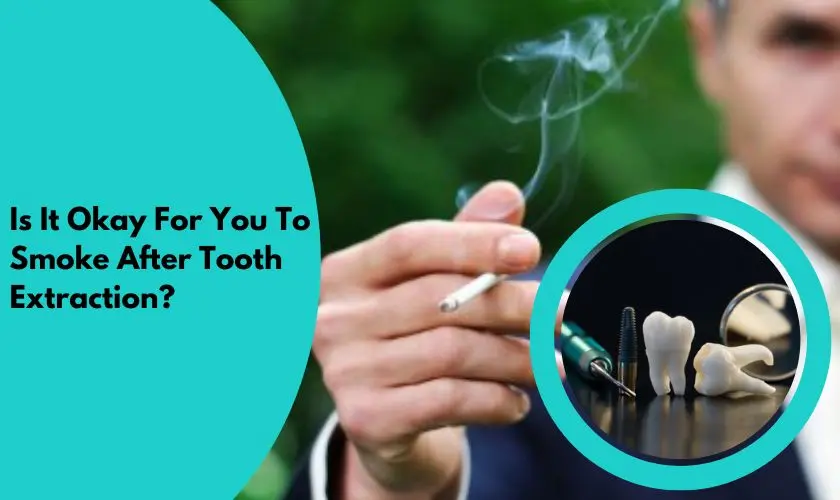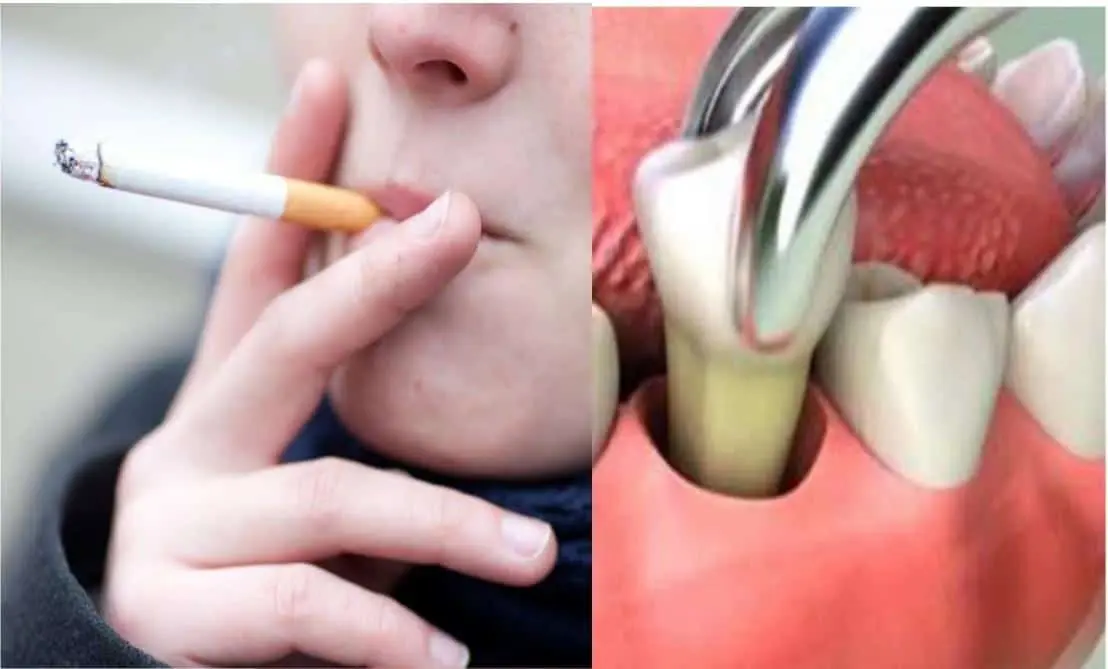Undergoing a tooth extraction can be a daunting experience, and it's important to follow post-operative care instructions to ensure proper healing. One common concern that arises after a tooth extraction is whether it is safe to smoke. In this article, we will explore the potential risks and complications of smoking after a tooth extraction and provide you with some helpful tips for a smooth recovery.

The Dangers of Smoking After Tooth Extraction
It is strongly advised to avoid smoking after a tooth extraction, as it can significantly interfere with the healing process and increase the risk of complications. Smoking introduces harmful chemicals and toxins into your mouth, which can delay the formation of blood clots and impede the healing of the extraction site.
One of the most common complications associated with smoking after a tooth extraction is the development of a condition called dry socket. Dry socket occurs when the blood clot that forms in the extraction site becomes dislodged or dissolves prematurely. This exposes the underlying nerves and bone, leading to severe pain, bad breath, and an increased risk of infection.
It is important to note that dry socket can be extremely painful and may require additional treatment from your dentist or oral surgeon.
How Long Should You Wait to Smoke After a Tooth Extraction?
It is highly recommended to refrain from smoking for at least 72 hours after a tooth extraction. This timeframe allows for the initial healing process to take place and reduces the risk of complications such as dry socket. However, it is even better to quit smoking altogether during the entire healing period to ensure optimal recovery.
Quitting smoking not only promotes better oral health but also improves overall health and reduces the risk of various diseases.
Tips for a Smooth Recovery
Here are some tips to help you navigate the recovery process after a tooth extraction:
- Follow your dentist's post-operative instructions: Your dentist will provide you with specific guidelines on how to care for the extraction site and promote healing. It is crucial to follow these instructions diligently.
- Avoid smoking and tobacco use: As mentioned earlier, smoking can hinder the healing process and increase the risk of complications. It is best to abstain from smoking for as long as possible, ideally quitting altogether.
- Practice good oral hygiene: Gently brush your teeth, including the extraction site, with a soft-bristle toothbrush. Be cautious not to disturb the blood clot or the healing process.
- Stick to a soft diet: Eat soft and easily chewable foods to avoid putting excess pressure on the extraction site. Opt for foods like soups, yogurt, mashed potatoes, and smoothies.
- Avoid strenuous activities: Engaging in intense physical activities can increase blood flow and potentially dislodge the blood clot. It is best to rest and take it easy for the first few days after the extraction.
Frequently Asked Questions
Can I smoke after a tooth extraction if I use an e-cigarette or vape?
No, it is still not recommended to smoke using e-cigarettes or vapes after a tooth extraction. These devices still introduce harmful chemicals and toxins into your mouth, which can impede the healing process and increase the risk of complications.
What should I do if I develop dry socket?
If you experience severe pain, bad breath, or an unpleasant taste in your mouth after a tooth extraction, it is essential to contact your dentist or oral surgeon immediately. They will be able to evaluate your condition and provide appropriate treatment, which may involve cleaning the extraction site and placing a medicated dressing to promote healing.
How long does it take for the extraction site to heal completely?
The complete healing of the extraction site can vary from person to person. On average, it takes about one to two weeks for the gum tissue to heal fully. However, the underlying bone may take several months to heal completely.
Smoking after a tooth extraction is strongly discouraged due to the potential risks and complications it poses to the healing process. It is best to abstain from smoking for at least 72 hours after the extraction and ideally quit smoking altogether to ensure optimal recovery. Following your dentist's post-operative instructions, practicing good oral hygiene, and adopting a soft diet can further support the healing process. Remember, your oral health is essential, and taking the necessary steps for a smooth recovery will contribute to your overall well-being.
If you want to know other articles similar to Smoking after tooth extraction: risks, complications, and recovery tips you can visit the Oral health category.


Related Articles